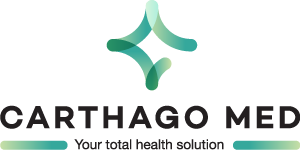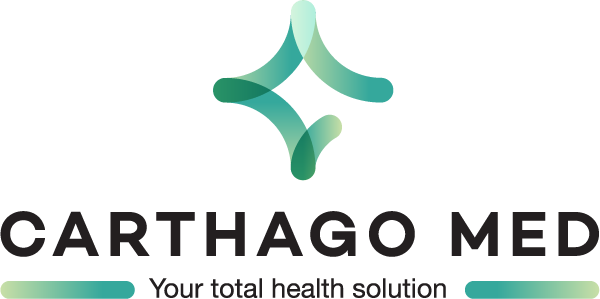
Some Tips and Triks to follow Before your Breast Augmentation Surgery
It is extremely important to be well prepared before your breast augmentation surgery. The preparations you make will not only improve your chances of a successful procedure but will also help you to cope better with the recovery phase. To help you prepare for your surgery and be ready for the big day, here are some important things to do, as well as simple tips and tricks you can follow.
What steps should be taken to ensure proper preparation in the weeks before a breast augmentation?
A breast augmentation, like any other cosmetic surgical procedure, must be carefully prepared, both physically and psychologically. Once the date of your admission to the clinic has been confirmed, you will have a few weeks in which you can organize yourself as best as possible.
Before heading to the clinic, there are several important steps you can take to ensure a smoother experience:
Firstly, prioritize moisturizing your breasts in the weeks leading up to the procedure. This can be achieved by diligently applying a suitable moisturizing cream, either purchased from a pharmacy or as recommended by your surgeon. This simple yet effective step helps prepare the skin of your breasts for the upcoming changes. Consider following specific treatments as advised by your surgeon. While not mandatory, these treatments can contribute to achieving optimal results. Depending on your unique case, your surgeon may recommend a tailored approach, such as a diet plan to approach your ideal weight or massage sessions to enhance the quality of your breast skin. Recognizing the individuality of each patient, your surgeon will prescribe a treatment plan tailored to your needs.
Psychological preparation is crucial as well. Understandably, doubts and questions may arise in your mind. During pre-operative consultations, feel free to address any specific concerns with your surgeon. Equally important is the mental preparation needed for the upcoming changes. Acknowledge that the recovery period may pose challenges, and your breasts and figure will undergo significant transformations. Open communication with those close to you, self-care, and maintaining a positive mindset will be essential throughout this journey. Take the time to work on yourself emotionally, ensuring you are mentally ready for the changes ahead.
What to avoid before your breast augmentation?
Embarking on the journey towards breast augmentation necessitates meticulous consideration and adherence to specific guidelines for a successful and healthy experience. It is crucial to be mindful of certain practices and habits leading up to your breast augmentation surgery.
Here’s a detailed exploration of what to avoid:
Firstly, nicotine and smoking products, including smoking, vaping, nicotine patches, and marijuana use, should be strictly avoided. Nicotine can significantly impede the healing process and increase the risk of complications. Therefore, it is advisable to cease all forms of nicotine consumption at least 2-4 weeks before and after surgery. Additionally, alcohol consumption in the week leading up to surgery is discouraged. Alcohol can interfere with the body’s natural healing processes and elevate the risk of bleeding during and after surgery. Avoiding alcohol helps ensure a smoother recovery.
Discontinuing blood thinner medications, such as Aspirin, Ibuprofen, Advil, Aleve, and certain supplements like Omega-3, Fish Oil, Garlic, and Vitamin E, without consulting your surgeon is another critical point to consider. These medications can heighten the risk of excessive bleeding during surgery, so it’s essential to consult with your surgeon to create a plan for managing your medications leading up to the procedure. Maintaining a healthy lifestyle is paramount. Poor nutrition, lack of exercise, and insufficient rest can impact your body’s ability to heal. Being in good physical shape is crucial for a healthy surgery and recovery. Prioritize a balanced diet, regular exercise, and adequate rest to optimize your body’s healing capabilities. Avoiding close contact with sick individuals is crucial, as exposure to illness increases the risk of infection, which can be particularly detrimental during the recovery phase. Minimizing contact with sick individuals helps safeguard your health.
Making last-minute changes to medication without consulting your surgeon is strongly discouraged. Any adjustments to your medication regimen should be discussed with your surgeon to ensure they won’t adversely affect the surgery or recovery process. Disregarding any pre-surgery instructions provided by your surgeon is a significant mistake. These instructions are tailored to optimize your health and well-being before the procedure. Following them diligently contributes to a smoother surgery and recovery. Maintaining emotional well-being is equally important. Excessive stress and negative emotions can impact physical health. Minimizing stress and maintaining a positive mindset positively influence the surgical experience and recovery. Lastly, inadequate pre-surgery planning, such as procrastinating on preparations, should be avoided. Being well-prepared is key to a stress-free recovery. Ensure you’ve made all necessary arrangements, from transportation to post-surgery support, well in advance.
What preparations should be made the day before the operation?
On the day preceding your clinic visit, meticulous attention to specific preparations and the avoidance of certain activities can significantly enhance your overall pre-operative experience. Initiate your preparations by thoroughly washing your hair, recognizing that this may pose a challenge in the immediate post-operative period. This not only ensures personal comfort but also aligns with post-surgery care recommendations. Opting for a light meal and maintaining proper hydration is advisable, serving as essential components in promoting general well-being. However, it’s imperative to refrain from consuming any food after midnight. This fasting period is crucial to optimize your body’s response to anesthesia during the upcoming procedure, enhancing its safety and effectiveness.
Furthermore, it’s essential to abstain from applying cosmetics or skincare products on your body, including creams and lotions. This precautionary measure is in place to minimize the risk of potential interactions between these products and the surgical environment. By adhering to these guidelines, you not only ensure the success of your clinic visit the following day but also contribute to a seamless and comfortable pre-operative experience. These conscientious efforts play a vital role in creating an environment conducive to a successful surgical outcome and a smoother recovery process in the days that follow.
What are some useful tips to consider before undergoing breast surgery?
Before undergoing the operation, in addition to the recommendations provided by the surgeon during preliminary consultations, there are several practical tips you can apply to ease your post-operative recovery period following discharge from the clinic. One helpful suggestion is to keep a packet of peas in your freezer, as the frozen peas can be applied to the skin to alleviate painful sensations. After each use, you can conveniently refreeze the packet and reuse it as needed. It is advisable to have someone accompany you on the day of the operation, preferably a friend or family member. The day following the procedure may pose challenges, and having assistance when leaving the clinic can be invaluable. If you have enlisted the services of an agency, your consultant will provide support throughout your stay.
Considering clothing choices is crucial as well. Before the procedure, it is recommended to bring blouses and roomy jackets, as lifting your arms and donning tight jumpers may be challenging post-surgery. Investing in a high-quality sports bra is also advised, especially for times when you need to remove and wash your support bra. Communication with your surgeon is paramount. Even as the procedure date approaches and only a few days remain, do not hesitate to reach out to your surgeon with any questions, even if they may seem trivial, and share any doubts you may have about the upcoming operation. Ensuring clarity and addressing concerns beforehand is essential to avoid any uncertainties on the significant day.









